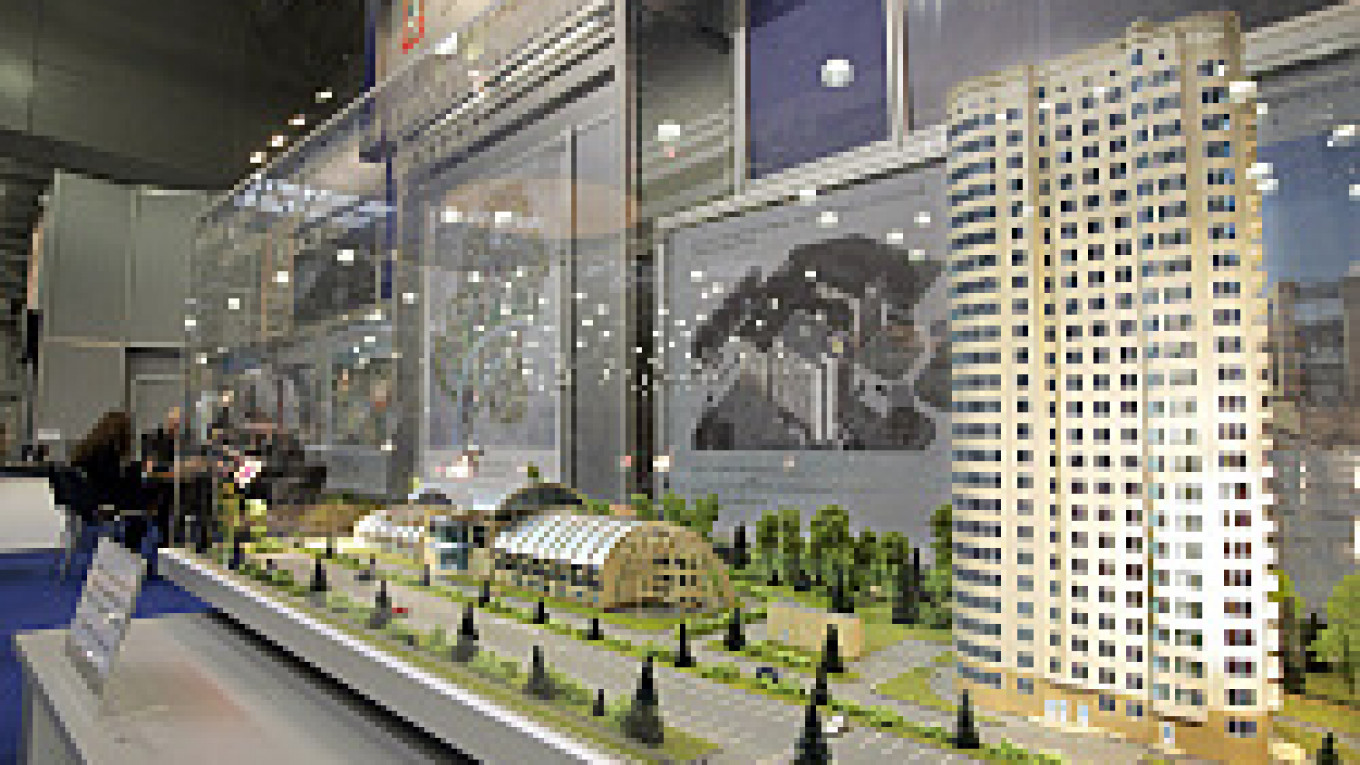The exhibition also featured Best Western's room of the future, hotel carpets made in Belarus and an array of bathroom furnishings.
Taking aim at hotels which, in the view of many Moscow officials, charge too much, Deputy Mayor Iosif Ordzhonikidze noted during the opening ceremony that "all the hotels in Germany made less money combined during this year's World Cup than Moscow's hotels did in the same period."
With Moscow struggling to turn the tide against a dwindling number of tourists, GAO Moskva, a company created by City Hall, organized the forum to improve ties between the city government and firms working in the hotel industry.
Ordzhonikidze, who heads the city government's external economics division, took the opportunity to lambaste many of the firms, accusing them of keeping prices artificially high and suppressing supply.
Developers, he said, were not building hotels in Moscow. Even Russian firms like City Hotel, now erecting a complex in northern Moscow, were including office space in their hotels, Ordzhonikidze said -- which, apparently, meant they were more interested in making money than providing affordable hotel rooms to tourists.
City Hall hopes to see the opening of 248 new hotels across Moscow by 2010. The city is trying to woo 5 million tourists by 2010, compared with 2.3 million last year -- and 2.5 million the year before that.
Papier-mache models of projected hotels were ranged across GAO Moskva's platform at the half-full hall the exhibition occupied at Crocus Expo Center.
The two towers of the first major Chinese-Russian joint construction venture, the $300 million Park Huamin hotel, shot out of their glass-enclosed display case. When completed in 2009, the towers are planned to rise to a respective 50 and 32 stories, near Botanichesky Sad.
City Hall is also banking on updated Soviet hotels to provide 2- and 3-star accommodations that Western tourists will stay at. The Zolotoi Kolos, or Golden Ear, a 1954 holdover, is expected to be renovated as a comb-shaped glass needle by 2010 on Yaroslavskaya Ulitsa, with a planned capacity of 5,200 guests.
A renovated, futuristic Ostankino Hotel is expected accommodate up to 3,400 in northern Moscow starting in 2009.
Other exhibits showcased Scandinavian building materials, hotel art -- heavy on the flowers and autumnal foliage -- and carpets from Vitebsk.
City Hotel, which owns the rights to the Best Western hotel brand in Russia, presented a prototype for what it called the hotel room of the future: a standard room consisting of a queen-size bed, a flat-panel television, and dim lamps placed throughout the room -- and looking suspiciously like the hotel room of the present.
The company, which also manages the Ostankino and Zolotoi Kolos, plans to open as many as 10 Best Westerns across Russia by 2009, starting with the Best Western Sherrizone, a 151-room hotel opening in February and located two kilometers from Sheremetyevo Airport.
In what could be a troubling sign for those looking for affordable hotel rooms, City Hotel's brochure promoting its Best Westerns makes no mention of nightly rates.
A Message from The Moscow Times:
Dear readers,
We are facing unprecedented challenges. Russia's Prosecutor General's Office has designated The Moscow Times as an "undesirable" organization, criminalizing our work and putting our staff at risk of prosecution. This follows our earlier unjust labeling as a "foreign agent."
These actions are direct attempts to silence independent journalism in Russia. The authorities claim our work "discredits the decisions of the Russian leadership." We see things differently: we strive to provide accurate, unbiased reporting on Russia.
We, the journalists of The Moscow Times, refuse to be silenced. But to continue our work, we need your help.
Your support, no matter how small, makes a world of difference. If you can, please support us monthly starting from just $2. It's quick to set up, and every contribution makes a significant impact.
By supporting The Moscow Times, you're defending open, independent journalism in the face of repression. Thank you for standing with us.
Remind me later.


